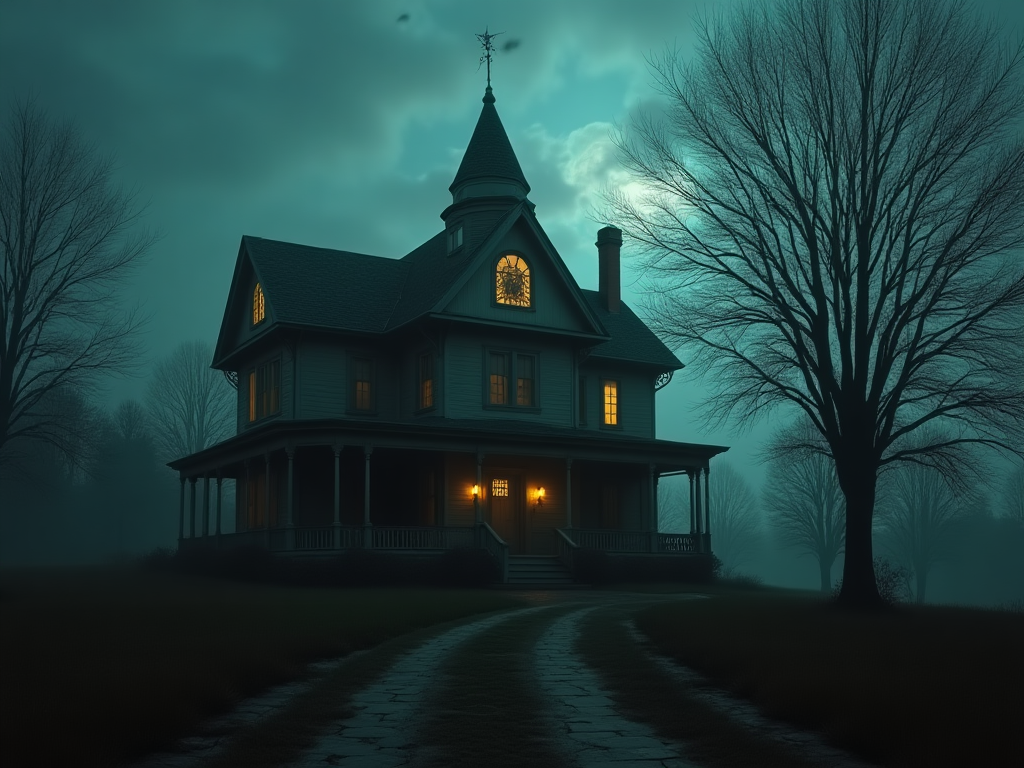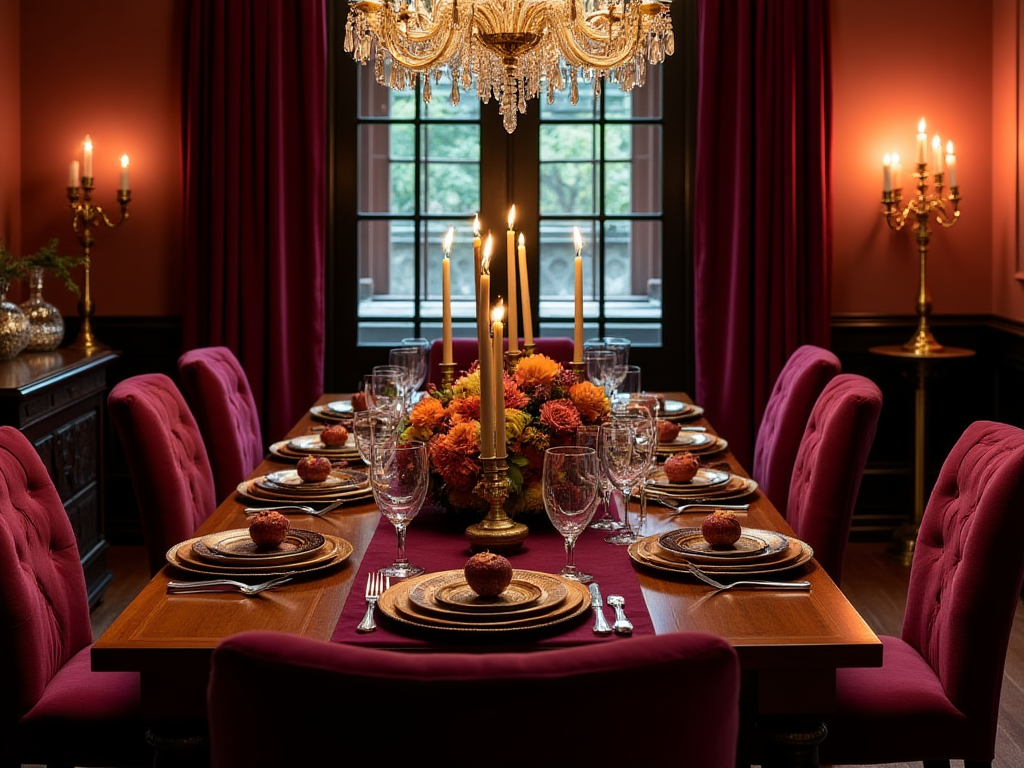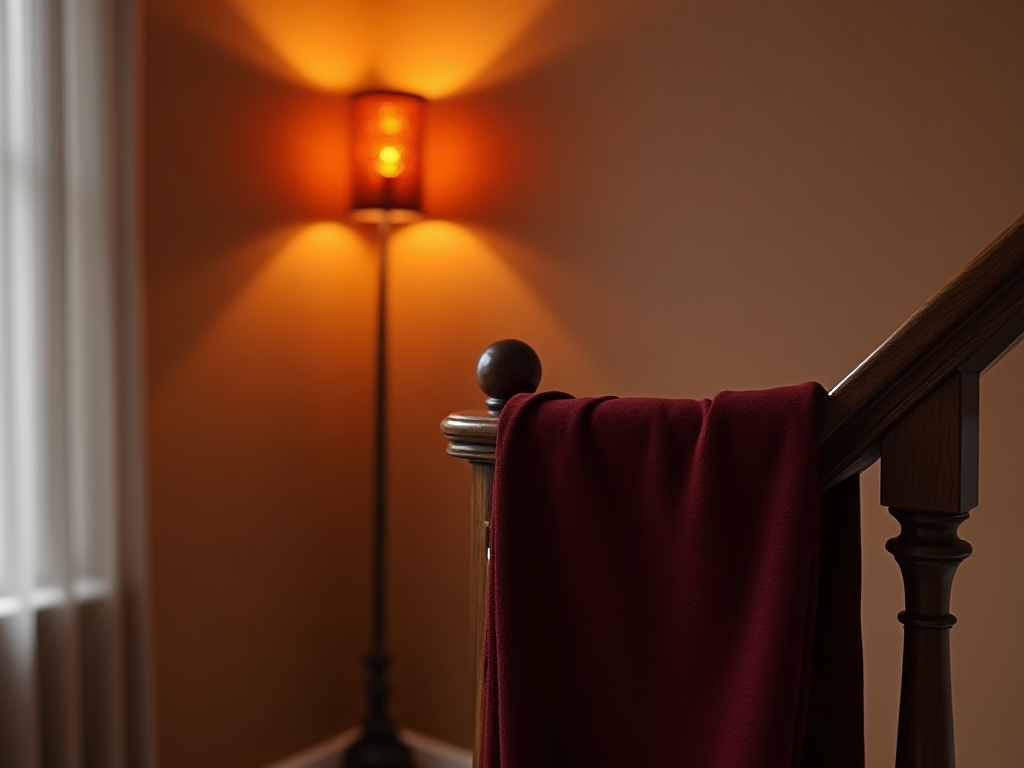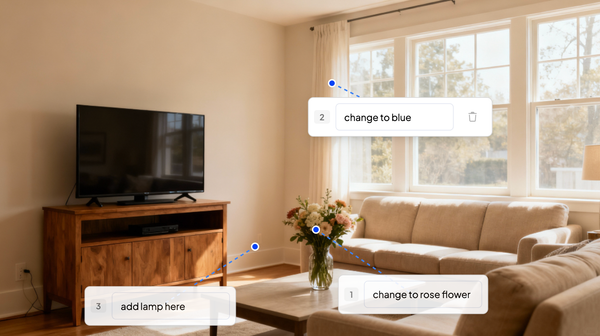The Listing That Staged Itself: A Real Estate Agent's Halloween Story About Virtual Staging and the Memory of Homes
A haunting Halloween story for real estate agents exploring virtual staging, AI tools, and how properties remember the stories we tell about them. Perfect for staging professionals.

The Ashford House had been empty for seven months when it landed on Rebecca's desk—a Queen Anne with good bones and a reputation for being impossible to photograph. Something about the light, previous agents had said. Something about how rooms looked smaller on camera than in person, how shadows fell wrong, how potential buyers would tour and shake their heads, saying it felt off somehow.
Rebecca had heard it all before. Historic properties came with baggage, and her job was to make that baggage look like character. She scheduled the photo shoot for late October, thinking the autumn light through those old wavy-glass windows might finally do the place justice.
But standing in the empty parlor that Tuesday afternoon, watching her photographer pack up after another disappointing session, Rebecca made a different decision. She'd use AI virtual staging for the Halloween listings push—dress the vacant rooms digitally, show buyers what the space could feel like rather than what it currently was. She'd seen other agents across the country pull it off beautifully on social media. How hard could it be?
She uploaded the raw photos that evening, working from her home office with rain pattering against the windows—unusual for Charleston in October, but welcome. The AI virtual staging software was intuitive—select style, choose color palette, adjust for seasonal aesthetic. She went with what she called "gothic elegance": burgundy velvet, brass candlesticks, dark wood furniture that looked inherited rather than purchased. For the entry hall, she added a console table with a copper bowl holding small pumpkins. In the parlor, she staged a reading vignette—leather chair, side table, amber lamp casting warm glow against the wallpaper. The dining room got a tablescape worthy of an October dinner party: brass candlesticks, deep plum runner, vintage glassware catching imaginary firelight.

When the AI staging renders finished processing at 11:30 PM, Rebecca sat back and smiled. They were perfect. Better than perfect. The house looked the way it should have looked all along—lived in, loved, inhabited. She scheduled the listing to go live on Zillow and Realtor.com in the morning and went to bed satisfied.
The showing request came in at 6 AM. Then another at 6:15. By 9 AM, she had twelve appointments scheduled for the weekend. The virtually staged photos were performing exactly as she'd hoped—stopping the scroll, sparking imagination, making buyers see past the empty rooms to the life that could unfold there.
She met her first clients at the house Saturday morning, and that's when she noticed the pumpkins.
Three small pumpkins sat in a copper bowl on the console table in the entry hall. The exact copper bowl from her virtual staging. In the exact position she'd digitally placed it.
Rebecca stared. She'd been in this house a dozen times over the past month. It had been empty except for dust and the particular silence of abandonment. She would have noticed a copper bowl. She would have noticed pumpkins. She looked closer—these weren't decoration store props. They were real, heavy, stems still attached, sitting in a bowl that looked genuinely antique, exactly like the one she'd selected from the AI's object library.
"Interesting staging choice," her client said. "Subtle. I like it."
Rebecca nodded, said something vague about seasonal touches, and moved them toward the parlor. Where a brass candlestick now stood on the mantel. The same twisted brass candlestick from her render. Not similar—identical. She recognized the pattern of the metalwork, the way light caught on the aged patina.
Her client was talking about sight lines and natural light, but Rebecca's mind was racing through explanations. Maybe the house's owner had been by. Maybe they'd seen the virtually staged photos and liked them enough to add a few props for the showings. Maybe—
In the dining room, afternoon sun slanted through the windows and caught on glassware. Six vintage wine glasses arranged on the built-in sideboard, burgundy reflections pooling on dark wood. The exact glasses from her staging. In the exact arrangement.
She began documenting it. Between showings, she took photos with her phone—the pumpkins, the candlestick, the glasses. That night, back at her office in downtown Charleston, she pulled up her original virtual staging files and compared them side by side. Everything matched. Not approximately—precisely. Down to the angle of the candlestick, the spacing between pumpkins, the way one wine glass was turned slightly outward as if someone had just picked it up and set it back down.
Sunday brought more showings and more impossible details. A leather-bound book on the parlor windowsill, spine creased exactly as it appeared in her staging. An amber glass lamp that hadn't been there on Saturday but was definitely there on Sunday, glowing softly in the corner as if someone had switched it on. A velvet throw draped over the bannister in a color she'd specified as "oxblood" in her rendering parameters.

She told herself she was exhausted. That selling real estate in Charleston during October while running on coffee and ambition was making her see things. That there was a rational explanation she simply hadn't thought of yet.
But Monday morning, when she returned to lock up after the weekend's marathon of showings, Rebecca walked through the house alone and let herself see what she'd been avoiding. The Ashford House wasn't empty anymore. It was furnished exactly as she'd virtually staged it—not physically, but energetically. The rooms held the weight of the furniture she'd imagined into them. Light fell where her renders had taught it to fall. The air moved differently, as if making space for objects that existed in digital form but had somehow left impressions in physical space.
She stood in the parlor, in the exact spot where she'd virtually placed the leather reading chair, and felt something settle around her like an embrace. The house had been empty so long it had forgotten what it was supposed to be. And then she'd shown it, through her staging, through her vision of what it could become. She'd told it a story about itself. And maybe—maybe houses were like people. Maybe they needed someone to see them, really see them, to remember who they were supposed to be.
Her phone buzzed. Another showing request. The message read: I saw your listing photos. That house looks alive. Like someone's actually living there. When can I see it?
Rebecca looked around at the empty rooms that didn't feel empty, at the spaces that held memory of furniture that had never physically existed, at shadows that fell exactly where her AI renders had predicted they would fall.
"Soon," she whispered to the house. "Someone's coming who'll understand you."
And she swore she heard the old floorboards creak in response, settling, satisfied.
That night, Rebecca sat at her desk and stared at her computer screen, at all the virtual staging files she'd created over the years working as a real estate agent. Hundreds of empty rooms dressed in digital furniture, thousands of spaces shown what they could become. She'd always thought of it as practical—a tool, a technique, a way to help buyers visualize potential.
But maybe it was more than that.
Maybe every time a real estate agent staged a property—virtually or physically—they were doing something ancient and essential. They were telling a space its own story. They were showing it what it could be, giving it permission to remember its purpose, helping it understand how to come alive again.
The houses we sell aren't just structures. They're witnesses. They absorb every story told within their walls, every vision projected onto their rooms. And sometimes, when someone sees them clearly enough, loves them specifically enough, shows them who they could be with just the right lighting and the perfect amber glow...
Sometimes they remember.
And sometimes, they stage themselves.
For every real estate agent who has ever walked into an empty house and seen it full. For everyone who has ever told a space its story and watched it lean in to listen. You're not just marketing properties. You're waking them up. And that's its own kind of magic.
Dare to let your property stage itself in just a few clicks at www.spacely.ai



